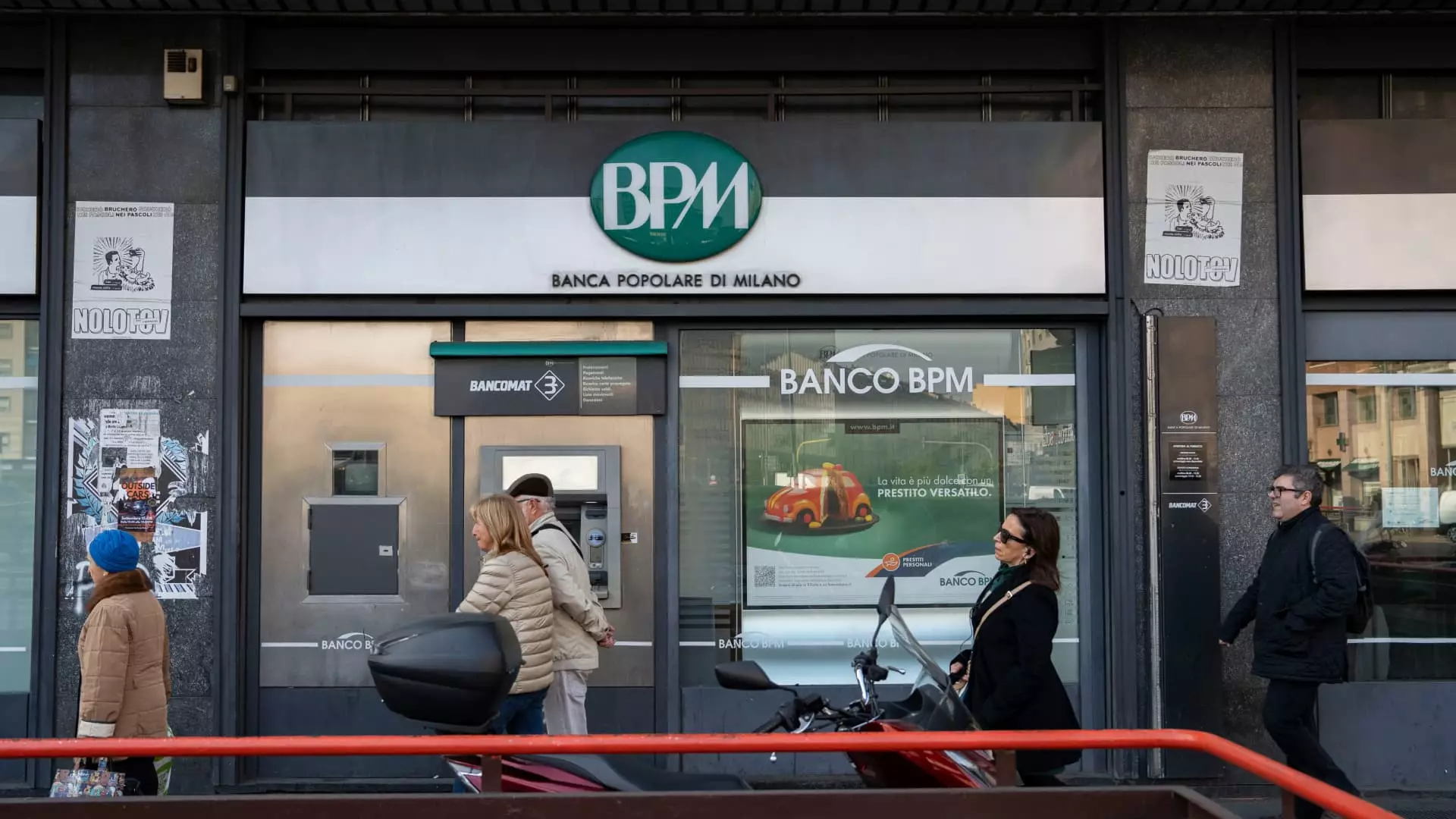In the realm of Italian banking, major players frequently reevaluate their strategies through mergers and acquisitions. Recently, the spotlight has shifted to Banco BPM, which is facing an unsolicited takeover bid from its rival UniCredit. This unexpected move has stirred a significant conversation regarding the implications of such consolidation on the bank’s autonomy, profitability, and future growth trajectory.
UniCredit’s overture, quantified at approximately €10 billion, came as a surprise to many in the financial market. This all-stock offer, which valued Banco BPM shares at a slight premium over the previous trading day, was characterized by Banco BPM’s board as being delivered under “unusual” terms that had not been pre-negotiated. Such lack of prior discussion raises questions about the sincerity and strategic foresight behind UniCredit’s approach. The terms appear hastily constructed, indicating a rushed desire for consolidation that may not align with either entity’s long-term vision.
In a statement analyzed by financial experts, Banco BPM’s board of directors articulated clear apprehension regarding UniCredit’s approach. They emphasize that the offer does not accurately reflect Banco BPM’s profitability nor its potential for future value creation. The board is not merely resisting a merger; they are safeguarding the bank’s integrity and operational autonomy from what they perceive as an undesirable and potentially harmful timeline for any merger discussions.
Their assertion suggests an inherent belief that Banco BPM has distinct strengths and growth opportunities that could be jeopardized by a hasty merger, emphasizing a desire for a strategic partnership based on mutual respect, rather than a forced integration.
Moreover, Banco BPM has raised concerns about how a merger could affect its current geographical exposure, signaling unease about expansion plans in Germany, which is a crucial market. The board argues that rather than creating a strategic concentration of assets in robust areas of the Eurozone, UniCredit’s bid may lead to a dilution of Banco BPM’s regional advantages. This perspective highlights a critical aspect of M&A considerations—maintaining regional strengths while pursuing aggressive growth strategies.
UniCredit’s ambitions extend beyond the Italian borders, with aspirations to secure a foothold in Germany through a separate engagement with Commerzbank. CEO Andrea Orcel posits that larger banks are essential for a competitive economic environment within Europe. However, this dual-front strategy raises significant flags. The Italian Economy Minister Giancarlo Giorgetti articulated a cautionary principle: spreading resources too thin across multiple ambitious fronts could lead to failure. This sentiment underlines the precarious balance of pursuing growth through consolidation while ensuring robust operational capabilities.
In the markets, reactions have been muted yet telling. As of Tuesday afternoon, UniCredit’s shares remained relatively stable, while Banco BPM’s stock experienced a slight decline, reflecting uncertainty among investors. This dynamic paints a broader picture of market sentiment — the gravity of UniCredit’s offer is palpable, but the resistance from Banco BPM indicates a significant negotiation landscape ahead.
Banco BPM’s recent acquisition of a stake in Monte dei Paschi—a historical rival—further complicates the scenario. This strategic investment reflects a proactive approach to enhance its growth, which could be undermined should a merger with UniCredit proceed.
The Italian banking sector is on the verge of significant transformations, as the interactions between these major institutions reveal deeper themes of autonomy, competitive strategy, and market stability. Banco BPM’s firm stance against UniCredit serves as a cautionary tale not only for potential mergers but also for the importance of maintaining a bank’s unique identity in the face of consolidation pressures. As discussions evolve, both banks must navigate their ambitions carefully, balancing growth with operational integrity in an increasingly complex financial landscape.

